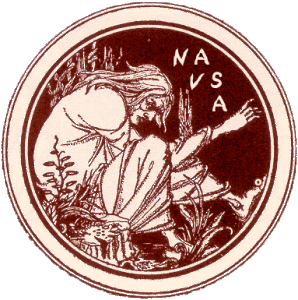
Afterlives of Eve: The Ghosts of Feminine Labor
North American Victorian Studies Association 2023 Conference: Revision, Return, Reform
And Eve first to her husband thus began …
“Let us divide our labours; thou, where choice
Leads thee …”
To whom mild answer Adam thus returned …
“… nothing lovelier can be found
In woman, than to study household good,
And good works in her husband to promote.
Yet …
… not to irksome toil, but to delight,
He made us …”
(Paradise Lost, Book IX: 204, 214–215, 226, 232–235, 242–243)
Specters, erasures, and forced revisions of historical shifts have characterized studies of nineteenth-century femininity. Labor narratives have attempted to recover gender as a meaningful category for study as opposed to delineating it into industrial and domestic spheres. Despite these gains, there is little popular memory of the process by which cheaper female labor was a key step in automating and undercutting all labor in an ongoing process of mechanization. For example, roughly 85 to 95 percent of workers in the 1820s American textile industry were women, and by 1850, Massachusetts employed one-third of its women between the ages of 10 and 29 in factories. From Ada Lovelace’s notes to the late-century clerical force that led to modern computing, feminine labor has historically shaped cultural shifts before becoming excluded from its histories. In Programmed Inequality, Mar Hicks writes of how “networks of labor and expertise extend into the systems themselves, constructing the social and technological bedrock” for our modern infrastructures even as those same networks are obscured and forgotten in the retelling.
In light of NAVSA’s 2023 theme of “Revision, Return, Reform,” this panel addresses how feminine labor haunts Victorian texts and contexts. With a view to connecting industrial foundations to our own current iterations of inequality, exploitation, and lost autonomy, this panel seeks to think about how systemic oppression manifests itself narratively and poetically in the works we study and the ways we study them. The organizers are especially interested in essays that navigate formal traces and practices related to ghosts, spirits, formal remainders, re-visions, and repressed traditions.
The papers brought together in this panel might address questions including: How does the return of the apparently expired enable a re-visioning or a reform of the place of women in Victorian capitalism or Victorianist scholarship? How have the efforts of women writers engaged the ghosts of past authors, reanimating old texts into something new? How might we, as scholars, return to debates seemingly long dead to revise the labor performed by the concept of the “feminine” in Victorian literature and culture? How do quite literal lady-ghosts return to haunt their texts and our present?
Submissions will be accepted through Saturday, February 25th. Please submit an abstract of no more than 300 words and a biographical note of no more than 125 words to Tobias Wilson-Bates (twilsonbates@ggc.edu) and Emma Davenport (emma.davenport@emory.edu).